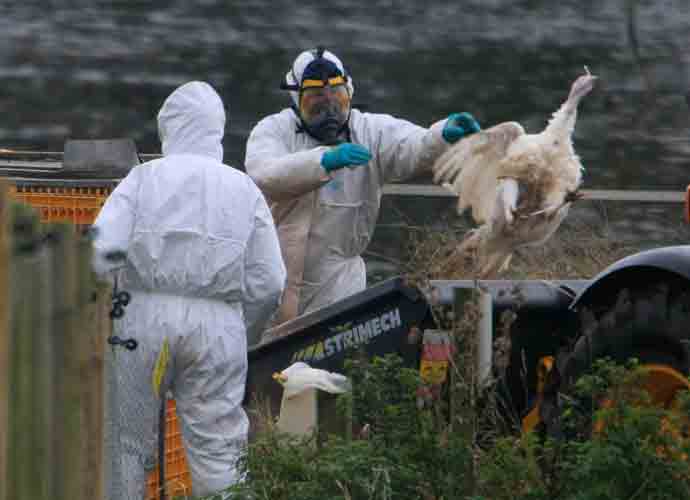As Bird Flu Surges In U.S. Dairy Herds, CDC Warns Of Heightened Infection Risks For Humans
The recent surge in avian influenza, commonly known as bird flu, cases among dairy herds across 12 U.S. states has escalated concerns about the potential for increased human infections, federal officials warned on Thursday.
The U.S. Department of Agriculture (USDA) has reported the presence of the virus in 94 dairy herds since late March and stressed the need for enhanced biosecurity measures to contain the outbreak.
Nirav Shah, the principal deputy director of the U.S. Centers for Disease Control and Prevention (CDC), emphasized the direct correlation between the spread of the virus among cattle and the risk to public health. “The more infections there are among cows, the more risk there is for infections to occur among humans,” Shah stated in a briefing with reporters.
The CDC has closely monitored over 500 individuals and tested at least 45 during the current outbreak, with three dairy farm workers testing positive for the virus. While the overall risk to the general public remains low, the agency has urged farm workers to wear protective gear to reduce their exposure to the virus.
In response to the growing threat, both the U.S. and Europe are preparing avian flu vaccines that could be used to safeguard farm workers this year. Genetic analysis of the latest human case revealed no signs of mutations that would enhance the virus’s ability to spread among people.
Kammy Johnson, a veterinary epidemiologist with the USDA, explained on a call with reporters that the virus likely spreads among dairy farms through various channels, such as animal movement, shared personnel, and the transfer of vehicles and equipment between facilities.
Interestingly, the USDA report released on Thursday found that wild birds, previously identified as an early vector of the virus, do not appear to be the primary driver of the spread from herd to herd or poultry farms.
To address the situation, the USDA has urged farmers to implement vigorous biosecurity practices, such as cleaning equipment and limiting the movement of sick animals. The agency will also provide financial support for milk and animal testing. Eleven of the 94 infected dairy herds have already enrolled in these programs.
Agriculture Secretary Tom Vilsack revealed that two dozen companies are currently in various stages of development on an avian flu vaccine for cattle.
RELATED ARTICLES
Get the most-revealing celebrity conversations with the uInterview podcast!







Leave a comment